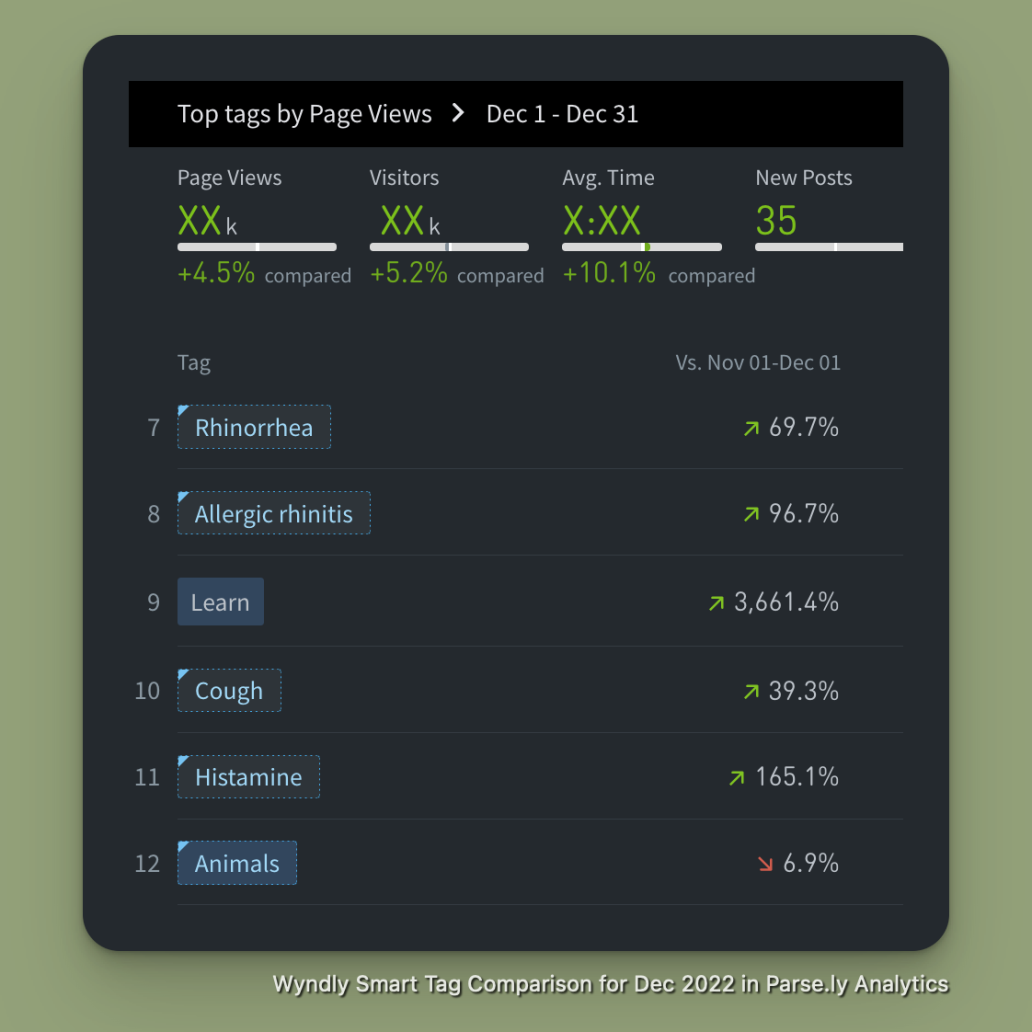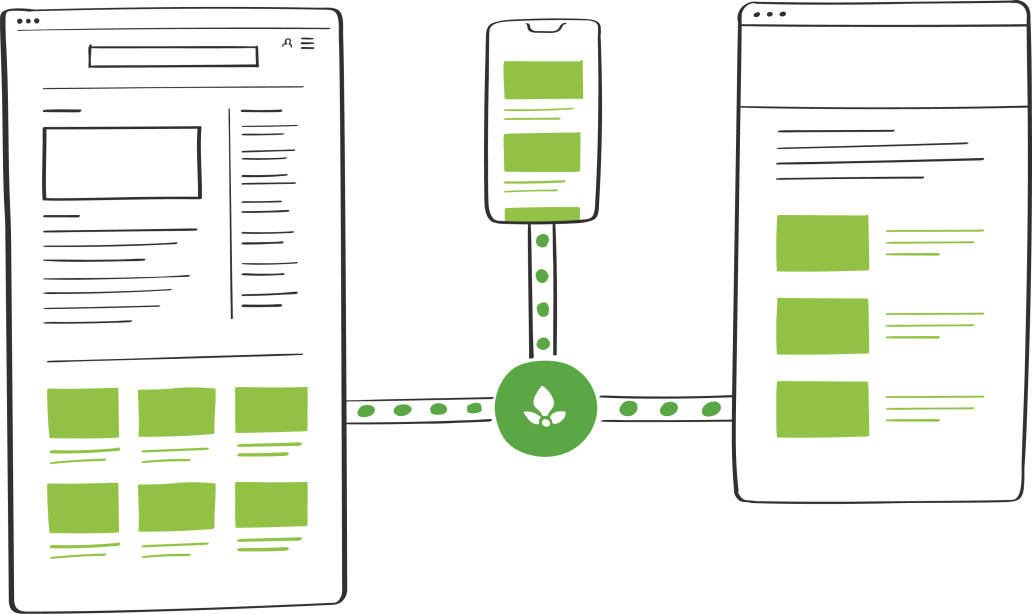Updated May 2025
As brands strive to produce more engaging, high-quality, personalized, and impact-driving digital experiences, artificial intelligence (AI) has stepped in as a powerful ally, even a marketing superhero.
But this is a cautionary tale. Reports say almost 60% of all content is AI-generated and 50% of readers can spot it, too, labeling brands who distribute it “impersonal and untrustworthy.” So, what’s a time- and resource-challenged enterprise marketer to do?
The answer: use AI to supercharge human creativity, not replace it.
Below, we’ll explore five practical ways marketers can integrate AI into their workflows, and how to ensure the human voice remains front and center.
1. AI for content creation: fuel your ideas, don’t replace them
GenAI writing tools like ChatGPT and old favorites like Grammarly with AI now on board can be a godsend when you’re staring at a blank page.
They can generate blog outlines, draft entire posts, or even rework existing copy into different tones or formats. But while these tools can jumpstart production and ideation, they can’t replicate a brand’s unique voice or insight into their audience’s emotional needs.
Pro tip: Use AI as your brainstorming partner. Let it draft rough versions, outlines, or frameworks, but always lean into your perspective, your brand’s personality, and your creative spark.
Tool spotlight: The Jetpack AI Assistant is integrated directly into WordPress, the world’s most popular CMS. This tool generates copy and bespoke imaging, directly in the WordPress Editor.
“There are many things folks want to be doing… Like kick-starting the editorial process rather than starting from a blank canvas.”
—Nick Gernert, CEO, WordPress VIP, speaking on the Agile Brand podcast
2. AI for content classification: make your library work smarter
Got hundreds (or thousands) of content assets in your digital library? AI can help you organize them with intelligent tagging and classification, otherwise known as taxonomy. This helps you surface relevant content to your team and audience, improve searchability, and generate more meaningful analytics.
Why it matters: Better taxonomy means more intuitive user experiences, a deeper understanding of your audience, and less time spent digging through content archives and libraries.
The “human factor”: You still need to define what “useful” looks like. AI can suggest tags, but you’ll know which ones truly reflect the language, personas, roles, and needs of your organization and customers.
Real-world example: Have AI tag your content library by target industry so your sales team can easily find relevant collateral to share with prospects. Tag by topic to build curated experiences for readers, like content hubs grouped by subject matter. And monitor the traffic, engagement, and conversion metrics associated with each tag to focus your content strategy on what’s working.
Tool spotlight: Parse.ly’s Smart Tags automate content tagging. The technology detects and tags topics in your content, increasing the scalability, accuracy, and depth of your content taxonomy without any manual work.

“What would the world look like if we stopped spending a lot of time in the editorial or creation process, wondering how we’ll consistently categorize things in our organization to make better use of this content today and in the future?”
—Nick Gernert, CEO, WordPress VIP, Agile Brand Podcast
3. AI for content recommendation: deliver personalized experiences
Whether it’s suggesting articles, videos, or products, AI excels at analyzing user behavior and recommending the right content at the right time. Think of it as your dynamic content concierge, adapting to each visitor’s interests in real-time.
That also means recommending follow-up content to spur conversions, such as completing a purchase, signing up for a newsletter, or downloading another asset.
But don’t forget: Personalization without empathy can feel creepy. Human marketers need to set the boundaries, ensuring recommendations align with your brand values and respect user privacy.
Best practice: Combine AI’s suggestions with editorial oversight to fine-tune what’s served and how.
Real-world example: Slate built an AI-powered infinite scroll reading experience—when a reader reaches the bottom of one Slate story, another related story appears. This strategy resulted in increased internal traffic, deeper engagement, and higher conversion rates.
Tool spotlight: Based on user behavior and engagement, Parse.ly’s Content API recommends high-performing related content on your pages and articles to drive readers deeper into the customer journey.

4. AI for content optimization: sweat the small stuff—automatically
What would the world look like if marketing teams at the enterprise level could spend less time on basic blocking and tackling?
Metadata, SEO tags, titles, readability scores—it’s the behind-the-scenes stuff that makes content discoverable. AI tools can generate keyword suggestions, create alt-text for images, propose compelling headlines, and even analyze readability in seconds.
Your role? As always, give the final word. Optimization isn’t just about algorithms—it’s about appealing to humans. Use AI to handle the repetitive bits, so you can focus on crafting content that resonates.
Tool spotlight: WordPress VIP’s Content Helper makes content optimization easy. It uses search-based performance data to tailor suggestions for basics like meta descriptions, headlines, and excerpts. It also automatically surfaces top-performing posts on similar topics and inserts high-authority smart links to related content.
5. AI for content reporting: turn data into insight
No human alone can synthesize a massive enterprise dataset of pageviews, engagement, conversions, and other content metrics years in the making (and growing) to summon audience insight on demand.
With the right AI tools, marketers can analyze huge datasets of content performance across channels and quickly identify what’s working—and what’s not. AI excels at surfacing trends, spotting anomalies, and suggesting next steps.
What only you can do: Contextualize the insights. AI might tell you that long-form blog posts about budgeting drive more conversions in Q4, or that technical topics have a longer engagement shelf life. But it’s up to you to decide how to act on it.
Tool spotlight: Analytics platforms like Parse.ly are beginning to incorporate AI into their dashboards, letting marketers use plain text queries, like a chatbot, to get directed to the insights they want. Find out more here.
“No one wants to say a year from now, ‘Yeah, we created 10x the content but got one-tenth the result.’ At the end of the creation process, we’re saying, ‘Here is some of your top-performing, high-authority content you previously published. Use that to create new, high-performing content.’”
—Nick Gernert, CEO, WordPress VIP, Agile Brand Podcast
Final thought: let AI handle the busywork—but keep the soul human
AI is a force multiplier. It can help marketers do more, do it faster, and do it smarter.
But content marketing isn’t just about efficiency—it’s about connection. Let AI streamline your processes, generate ideas, and crunch numbers, but never outsource the parts that make your content human: empathy, storytelling, nuance, and voice.
With a smart strategy and the right balance, AI doesn’t replace marketers—it empowers them to do their best work.
“How are we going to connect authentically and drive additional knowledge and insight on top of [AI-generated content]?”
—Nick Gernert, CEO, WordPress VIP, Agile Brand Podcast
Explore more
Author

Greg Ogarrio, Content Marketer—WordPress VIP

